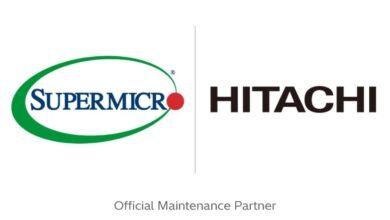Runloop Secures $7M to Boost AI Coding with Cloud Devboxes

▼ Summary
– Runloop, a San Francisco-based startup, raised $7 million in seed funding to address the “production gap” in deploying AI coding agents in enterprise environments.
– The company’s platform, “devboxes,” provides cloud-based development environments where AI agents can safely execute code, scaling dynamically based on demand.
– Runloop’s second product, Public Benchmarks, offers standardized testing for AI coding agents, evaluating complex, multi-step outcomes rather than single interactions.
– The AI coding tools market is projected to grow to $30.1 billion by 2032, with Runloop targeting early adopters like Series A companies and model labs.
– Runloop’s vision extends beyond coding, aiming to provide infrastructure for AI agents across various domains, enabling scalable deployment in enterprises.
Runloop, a San Francisco startup specializing in AI infrastructure, has secured $7 million in seed funding to bridge what it calls the “production gap” , the challenge of moving AI coding agents from experimental prototypes to real-world enterprise applications. The funding round was led by The General Partnership, with participation from Blank Ventures, reflecting growing investor interest in scalable AI development tools.
The company’s platform tackles a critical question in AI-driven software development: Where do AI agents execute complex, multi-step coding tasks? Jonathan Wall, Runloop’s CEO and co-founder, compares the challenge to onboarding human employees. Just as new hires need laptops, credentials, and development environments, AI agents require their own workspaces to function effectively.
Runloop’s flagship product, cloud-based “devboxes”, provides isolated environments where AI agents can safely run code with full access to filesystems and build tools. These environments are dynamic, scaling up or down based on demand. For example, a customer automating unit test generation might deploy thousands of devboxes simultaneously to analyze codebases and generate test suites, then shut them down once the task is complete.
The startup has seen rapid adoption since launching billing in March, with customer growth exceeding 200% and revenue doubling. Early adopters include Series A startups and AI model labs, drawn by the platform’s ability to accelerate development cycles. One customer, Detail.dev, reported that Runloop saved six months of infrastructure work, allowing them to focus on building AI agents that tackle technical debt.
Beyond devboxes, Runloop offers Public Benchmarks, a tool for standardized testing of AI coding agents. Unlike traditional evaluations that focus on single interactions, Runloop’s approach assesses entire workflows, incorporating multiple LLM calls and tool uses within real-world coding contexts. This capability has attracted model labs using the platform to verify AI behavior during training.
The AI coding tools market, projected to reach $30.1 billion by 2032, is crowded with major players like GitHub Copilot and OpenAI’s Codex. Yet Wall sees competition as validation rather than a threat, predicting a shift toward domain-specific AI agents optimized for tasks like security testing or database optimization.
Runloop’s usage-based pricing model includes a small monthly fee plus compute costs, with enterprise contracts in development. The new funding will fuel engineering and product expansion, leveraging a team with experience from Google, Stripe, and Vercel.
Looking ahead, Wall envisions AI agents becoming ubiquitous in enterprises, requiring scalable infrastructure for deployment. “If your team wants to use five agents each, how do you onboard 25 digital employees?” he asks. Runloop’s solution aims to make AI agents as manageable as traditional software, turning the promise of AI-assisted development into an operational reality.
As the market grows, Runloop plans to expand beyond coding, though its immediate focus remains on AI-driven development environments. With enterprises increasingly adopting AI tools, the demand for robust infrastructure, like Runloop’s devboxes, will only intensify.
(Source: VentureBeat)





